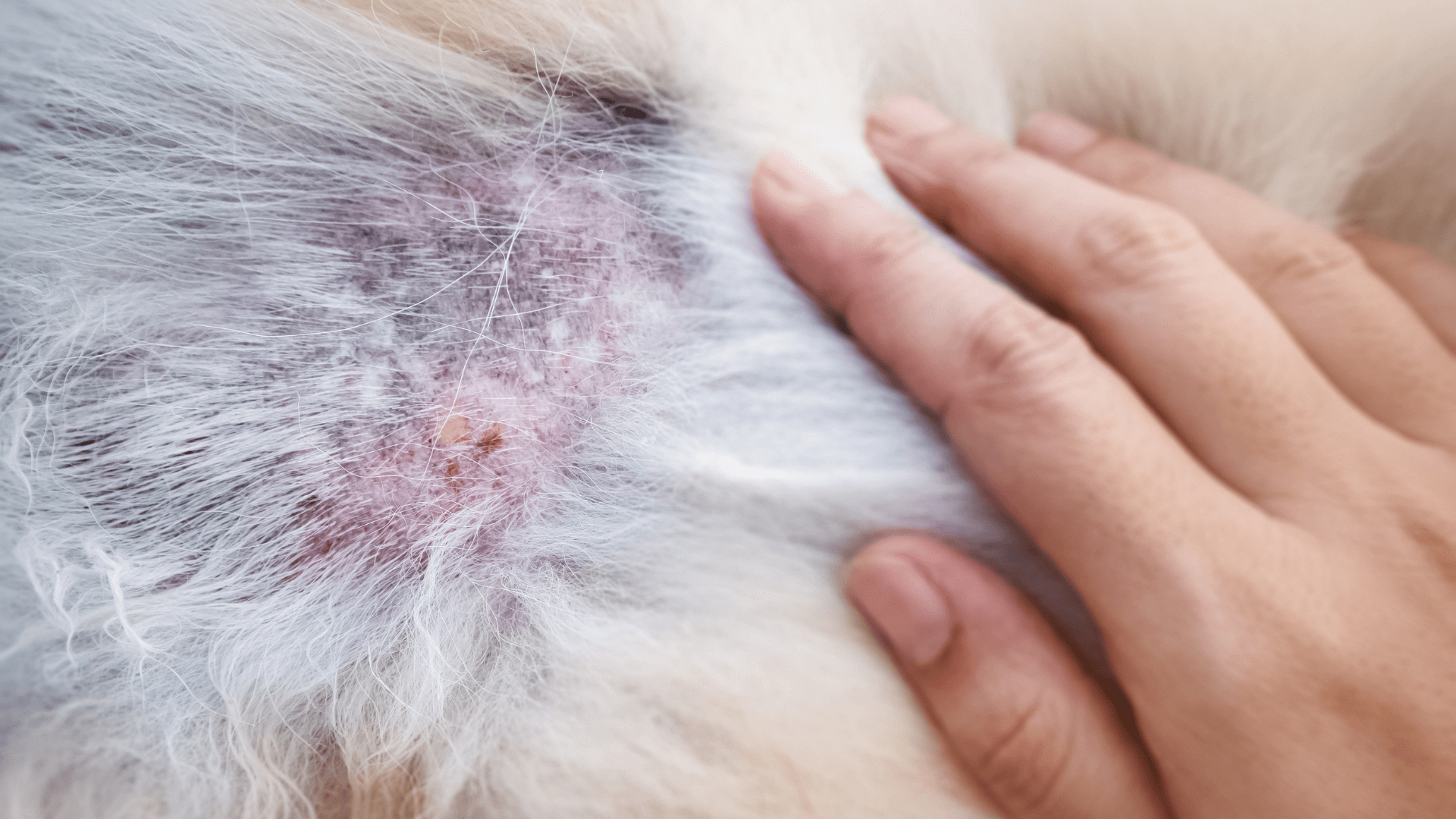
Skin problems in dogs: causes & help
Skin problems are one of the most common complaints in dogs and can cause a variety of symptoms that can affect the well-being of your loyal companion. In this comprehensive blog post, you will learn what causes skin problems, how to recognize the symptoms and what you can do to help your dog.
1. Causes of skin problems
The causes of skin problems in dogs can be varied. A clear understanding of the possible causes will help you find the right treatment for your dog.
-
Allergies : Allergies are a common cause of skin problems in dogs. They can be triggered by food, environmental factors such as pollen or dust mites, or contact allergens such as certain materials or chemicals.
-
Parasites : Fleas, ticks and mites can cause skin irritation and lead to itching, rashes or hair loss. Parasite infestation is particularly common in dogs that spend a lot of time outdoors.
-
Infections : Bacterial or fungal infections can cause skin problems that result in redness, swelling, and pus formation. These infections can occur secondary to other skin problems.
-
Hormonal disorders : Hormonal disorders, such as those that occur in diseases of the thyroid or adrenal glands, can cause skin changes and problems.
-
Skin injuries : Injuries or wounds caused by scratching, biting or accidents can also cause skin problems. Improper care or infected wounds can affect skin health.
2. Symptoms of skin problems
Symptoms of skin problems can vary, but here are some common signs to look out for:
-
Itching and Scratching : If your dog scratches or licks himself frequently, this may indicate itching caused by skin problems.
-
Redness and inflammation : Redness, swelling or inflammation of the skin are often signs of skin problems. These symptoms may indicate allergies or infections.
-
Hair loss : Sudden or gradual hair loss can be an indication of skin problems caused by parasites, infections or hormonal disorders.
-
Flaky or dry skin : Flaky, dry or cracked skin can be caused by various reasons such as allergies, skin infections or malnutrition.
-
Unpleasant odor : An unpleasant, foul odor coming from your dog's skin or coat may indicate an infection or other skin problems.
3. What to do if you have skin problems?
If you notice skin problems in your dog, there are some steps you can take to help:
-
Visit to the vet : The first step should always be a visit to the vet. The vet can make an accurate diagnosis and suggest an appropriate treatment. Skin problems can often be complex and require professional help.
-
Diagnostic tests : Your veterinarian may order tests such as skin swabs, blood tests or allergy tests to identify the cause of the skin problems and treat them accordingly.
-
Treating allergies : If allergies are the cause, a special diet or allergy medication may be necessary. Your veterinarian can help identify the allergens causing the problem and recommend appropriate treatment.
-
Parasite control : If parasites are the cause, you should use appropriate medications to control fleas, ticks or mites. Your veterinarian can recommend products that are effective and safe for your dog.
-
Skin care : Use gentle, hypoallergenic shampoos and grooming products that are suitable for sensitive dog skin. Make sure to clean and condition your dog's skin regularly to avoid irritation.
4. Home remedies and preventive measures
In addition to veterinary treatment, certain home remedies and preventative measures can be helpful:
-
Coconut oil : Coconut oil can help relieve dry skin and itching. It has anti-inflammatory and antimicrobial properties that can help improve skin health. Apply in small amounts directly to affected areas.
-
Aloe Vera : Aloe vera gel can have a soothing and healing effect on irritated skin. It can help reduce inflammation and promote the healing of skin wounds.
-
Healthy diet : A balanced diet rich in essential fatty acids and vitamins can support your dog's skin health. Food with high-quality ingredients and special supplements such as omega-3 fatty acids can strengthen the skin barrier and reduce allergies.
-
Regular grooming : Keep your dog's coat clean and free of tangles. Regular brushing can help detect and prevent skin problems early.
Conclusion
Skin problems in dogs can have a variety of causes and produce different symptoms. By understanding the possible causes and symptoms, you can act quickly and provide your dog with the right help. Remember, consulting a veterinarian is essential for any skin problem to ensure an accurate diagnosis and appropriate treatment. With the right care and attention, you can help your dog recover quickly and get back to being his usual, happy self.
Share

